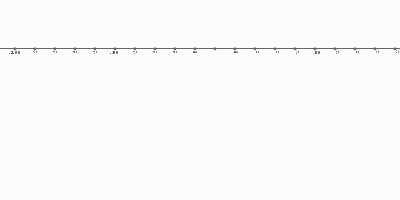Russian Empire (jan 1, 1721 – jan 1, 1917)
Description:
1865 In what today is Uzbekistan, Russians capture the city of Tashkent, which is to become a Russian administrative center.1876 The Russians have conquered all of Uzbekistan and occupy the northern part of Kyrgyzstan.
1878 The British fear Russia's expansion southward. The word jingoism is on the way, rising from a popular song in Britain that begins: "We don't want to fight, but by jingo if we do We've got the ships, we've got the men and got the money too!"
1905:
Jan 22 For Russia war is the creator of misery and the mother of revolution. Russian sailors have rebelled and their rebellion has spread to major cities. At the tsar's Winter Palace in Saint Petersburg a huge demonstration is fired upon. Between 200 and 1,000 are killed, the event to be known as Bloody Sunday.
June 17 In Russia, strikes, peasant uprisings in many provinces, revolutionary movements among national minorities and rebellions in the armed forces are developing. A rebellion has occurred aboard the battleship Potemkin, which has pulled into port at Odessa. The ship's captain, the doctor and several other officers have been killed and other officers shut away in one of the cabins. A red flag has been hoisted and a People's Committee put in charge of the ship. Troops arrive and fire on the crowd supporting the sailors. Casualties will be described as 2,000 dead and 3,000 seriously wounded. The next day the Potemkin sets out to sea, the mutineers hoping to provoke mutinies elsewhere.
Jun 25 The Potemkin mutineers surrender their ship to Romanian authorities. They will return the Potemkin to the Russian navy.
Oct 30 Russia's Tsar Nicholas II relents and agrees to a political constitution that gives some power to a legislature (the Duma) and promises a free press.
Dec 7 Moscow's Bolsheviks, Mensheviks and Socialist Revolutionaries combine in a general strike and an attempt to take power.
Dec 9 An attempt by Moscow's governor to arrest the ringleaders is followed by a city-wide uprising. Barricades go up. A few have guns. Bolsheviks take the lead.
Dec 11 In Kiev an uprising in support of the Moscow uprising establishes a workers' republic, the Shuliavka Republic, which lasts four days, crushed by the Russian Army and local authorities.
Dec 18 The Imperial Russian Army, viewed as a failure due to its defeats by the Japanese, proves itself a success against Bolshevik forces. Army soldiers are told "To act without mercy; there will be no arrests." The Bolsheviks call an end to the strike and a return to work. The rising ends with 35 soldiers killed and 1,059 rebels killed including 137 women and 86 children.
Dec 30 Frank Steunenberg, governor of Idaho from 1897 to 1901 is assassinated by a bomb. The assassin is Albert Horsley, a miner with a criminal past and a gambling problem working as a paid informer for the Cripple Creek Mine Owners Association. He is to be arrested and imprisoned in January.
1906:
Apr 23 Russia's Tsar Nicholas II has pledged to provide broad participation in a legislative body, the Duma, and to give this Duma oversight powers. It's a surrender to the world trend toward constitutionalism. But having pacified the revolution of 1905 with promises, he has not given up on retaining the autocratic power that he believed was his as a gift from God. Today the tsar gives a constitution to the Russian people. He retains his absolute power. The Constitution gives Nicolas the power to appoint and dismiss ministers, to issue decrees, to veto legislation, to dismiss the Duma at any time and the Constitution can't be changed without his approval.
Nov 22 Russia's Prime Minister Pyotr Stolypin seeks to dampen class unrest and to gain support for the tsar from Russia's majority: its peasants. He begins a farming system that emphasizes more individual freedom and private ownership, and he initiates a program to assist peasants in settling lands in Siberia.
1907:
Mar 5 In Russia, the new Duma in opened in St. Petersburg, and Russian troops disperse 40,000 demonstrators
Jun 3 In Russia, Prime Minister Stolypin has accused Social Democrats of preparing an armed uprising. He demands the exclusion of 55 of their representatives from the tsar's legislative body, the Duma. The Duma refuses. Stolypin and the tsar dissolve the Duma.
Aug 31 With Russia's defeat by Japan, the British see Russia as less of a threat to their interests. Britain signs a treaty with Russia. Russia agrees that Britain should have controlling influence in Afghanistan and Tibet, and the two powers end their rivalry in Iran by dividing that land into two zones of influence.
Nov 1 In Russia, Tsar Nicholas has given greater electoral value to the votes of nobility and landowners. These conservatives will dominate a new "Third Duma." Meanwhile, the tsar's police are cracking down on leftists. Jews are being attacked in Odessa.
Added to timeline:
Date:
jan 1, 1721
jan 1, 1917
~ 196 years
